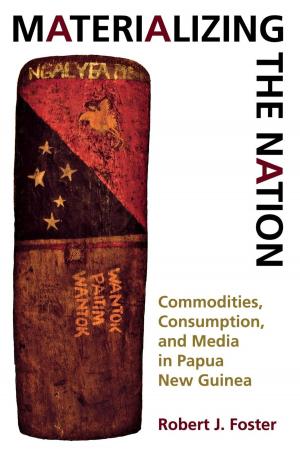"Right Makes Might"
Proverbs and the American Worldview
Nonfiction, Social & Cultural Studies, Social Science, Folklore & Mythology, History, Americas, United States, Political Science| Author: | Wolfgang Mieder | ISBN: | 9780253040374 |
| Publisher: | Indiana University Press | Publication: | April 4, 2019 |
| Imprint: | Indiana University Press | Language: | English |
| Author: | Wolfgang Mieder |
| ISBN: | 9780253040374 |
| Publisher: | Indiana University Press |
| Publication: | April 4, 2019 |
| Imprint: | Indiana University Press |
| Language: | English |
In 1860 Abraham Lincoln employed the proverb, Right makes might, (opposite of the more aggressive Might makes right) in his famed Cooper Union address. While Lincoln did not originate the proverb, his use of it in this critical speech indicates that the 14th century phrase had taken on new ethical and democratic connotations in the 19th century. In this collection, famed scholar of proverbs Wolfgang Mieder explores the multifaceted use and function of proverbs through the history of the United States, from their early beginnings up through their use by today's well-known politicians, including Barack Obama, Hillary Rodham Clinton, and Bernie Sanders. Building on previous publications and unpublished research, Mieder explores sociopolitical aspects of the American worldview as expressed through the use of proverbs in politics, women's rights, and the civil rights movement. By looking at the use of proverbial phrases, Mieder demonstrates how one traditional phrase can take on numerous expressive roles over time and how they continue to play a key role in our contemporary moment.
In 1860 Abraham Lincoln employed the proverb, Right makes might, (opposite of the more aggressive Might makes right) in his famed Cooper Union address. While Lincoln did not originate the proverb, his use of it in this critical speech indicates that the 14th century phrase had taken on new ethical and democratic connotations in the 19th century. In this collection, famed scholar of proverbs Wolfgang Mieder explores the multifaceted use and function of proverbs through the history of the United States, from their early beginnings up through their use by today's well-known politicians, including Barack Obama, Hillary Rodham Clinton, and Bernie Sanders. Building on previous publications and unpublished research, Mieder explores sociopolitical aspects of the American worldview as expressed through the use of proverbs in politics, women's rights, and the civil rights movement. By looking at the use of proverbial phrases, Mieder demonstrates how one traditional phrase can take on numerous expressive roles over time and how they continue to play a key role in our contemporary moment.















